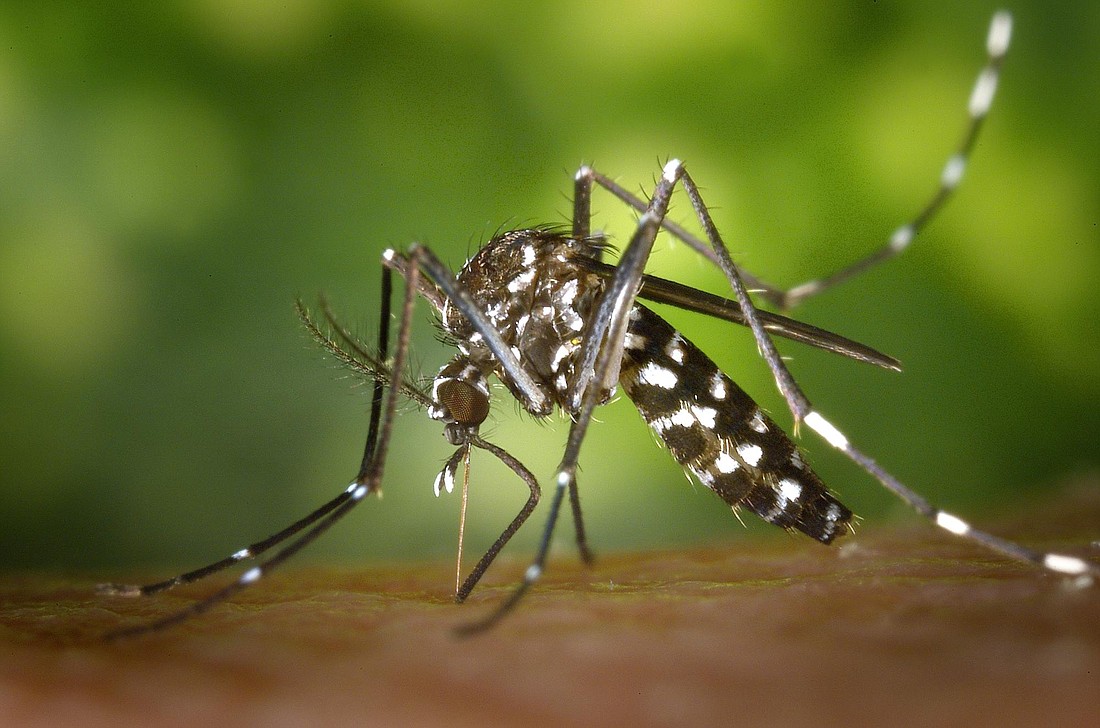- November 23, 2024
-
-
Loading

Loading

By: East Flagler Mosquito Control District
If you live in Florida, you have probably seen, or at least heard, mosquito fog trucks late at night or early in the morning.
This motorized spray equipment is only one part of what mosquito control programs around the country do to control mosquitoes.
The trucks work by emitting very fine droplets of pesticide using an air blower and a chemical pump. The pesticide then drifts into backyards in residential areas.
At less than 1 ounce per acre, this is a very small amount of pesticide, just enough to be effective against small insects such as mosquitoes.
Helicopters, boats, all-terrain vehicles and boots on the ground are all used to combat the scourge of mosquitoes. Much of this takes place out of public sight because it is done in areas where people don’t go but mosquitoes like to call home.
Timing is everything.
Mosquitoes are most active as the sun is setting and again before the sun rises. The term for this pattern of activity is crepuscular.
Coincidentally, this is when people tend to be outside in the summertime to take advantage of the cooler temps before the heat of the day and after it starts to cool off in the evening.
Mosquitoes are no dummies.
Flagler County is home to 48 species of mosquitoes, and while mosquitoes might seem ubiquitous, they are in fact not omnipresent.
Controlling mosquitoes has as much to do with monitoring for mosquitoes as it does with applying pesticides. Every morning before the sun is up, mosquito control personnel go out looking for adults by monitoring collection traps and bite stations.
Once the population exceeds a baseline, control measures are applied. In other words, you have to have mosquitoes before you can spray for mosquitoes.
The daylight hours are spent surveying breeding sites and applying treatments to breeding sites before they can emerge as biting adults.
The helicopter makes quick work of this when working in the salt marsh.
Salt marsh mosquitoes exploit the ebb and flow of standing water, which they need for their eggs to develop, by laying eggs in locations that dry down in between rains to escape predation from fish.
And when those eggs hatch after a substantial rain, they reproduce in such large numbers that bats, purple martins, and dragon flies cannot consume enough of them to make a dent in the population.
Mosquitoes are a nuisance, but they are also the deadliest animal on the planet for humans, according to the CDC.
The female mosquito spreads disease when it goes looking for a blood meal which it needs to lay its eggs.
Certain diseases cycle back and forth between mosquitoes and other animals, some of which are endemic, like West Nile Virus and Eastern Equine Encephalitis.
While the district goes to extremes to find and control mosquitoes in out of the way places, mosquitoes may also be living in your yard.
Containers of all kinds can breed mosquitoes, but only two species of mosquitoes make their homes exclusively in containers: Aedes aegypti, the yellow fever mosquito; and Aedes albopictus, the Asian tiger mosquito.
These species are not native to Florida and do not reproduce in the natural environments like other mosquitoes.
We need your help ridding Flagler County of these non-native pests, so eliminate containers from your yard today.
Waste tires and other discarded containers are easy to identify for removal, but don’t forget about things like children’s toys, dog water bowls, boats holding water, clogged gutters, etc.
After removing all of this from your yard, don’t forget about those bromeliad plants.
Bromeliads hold water like any other container and are a haven for container-breeding mosquitoes. Bring your bromeliads to us, and we will feed them to the wood chipper and turn them into mulch for our butterfly garden.
To get more information, visit our website or visit the Bunnell or Palm Coast libraries to see our display.
The East Flagler Mosquito Control District was established in 1952 and stretches from the coastal areas of Marineland and Flagler Beach inland to Palm Coast and Bunnell.